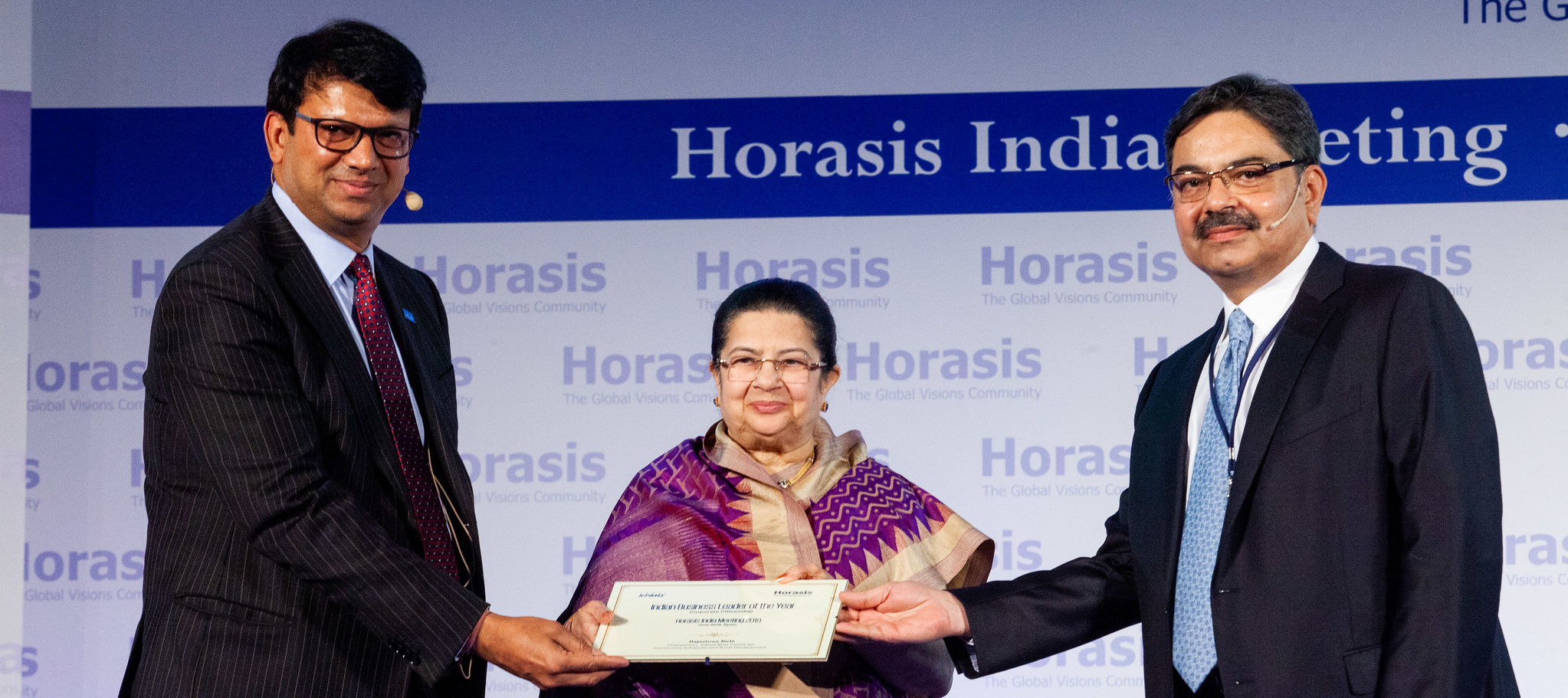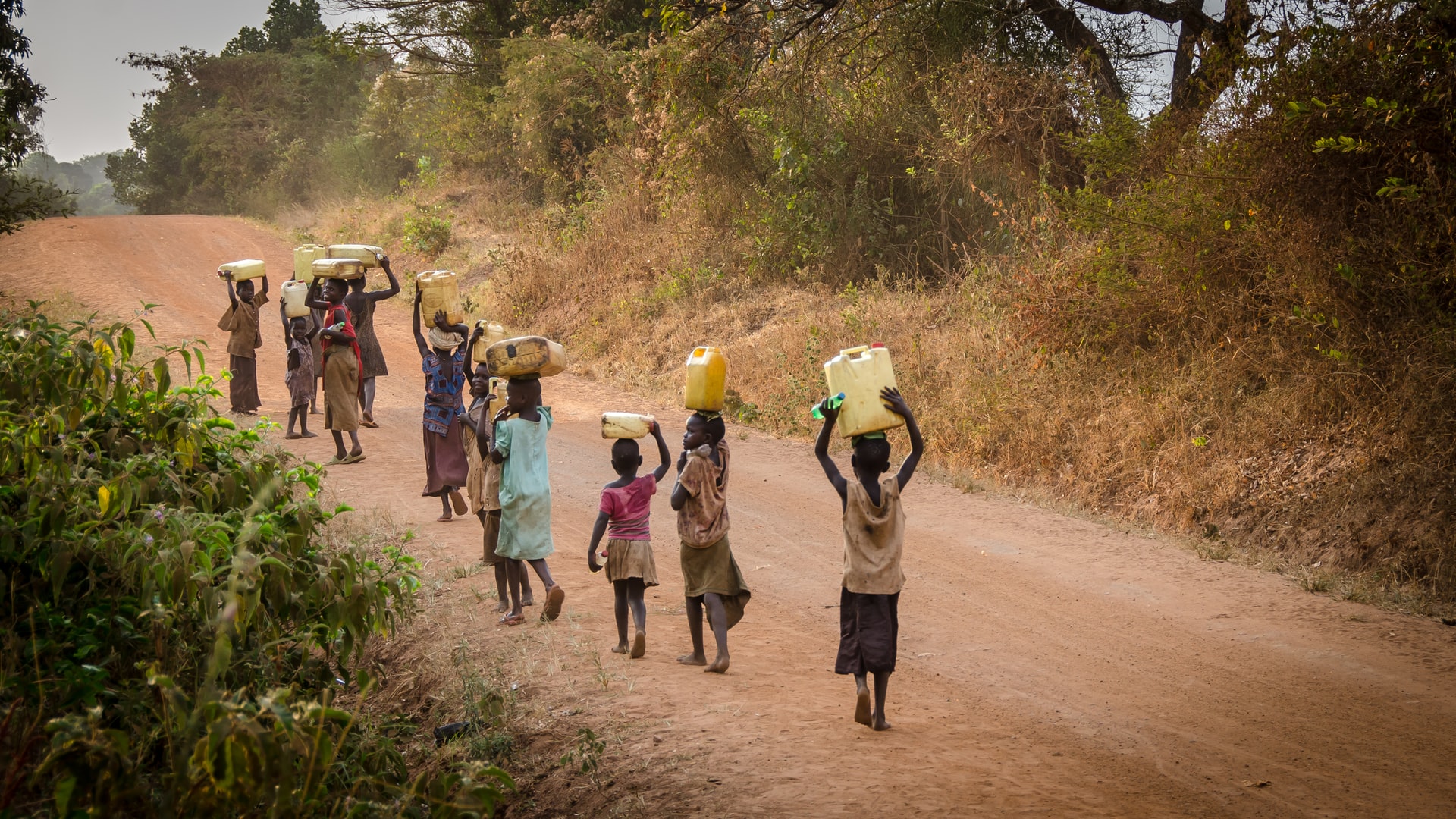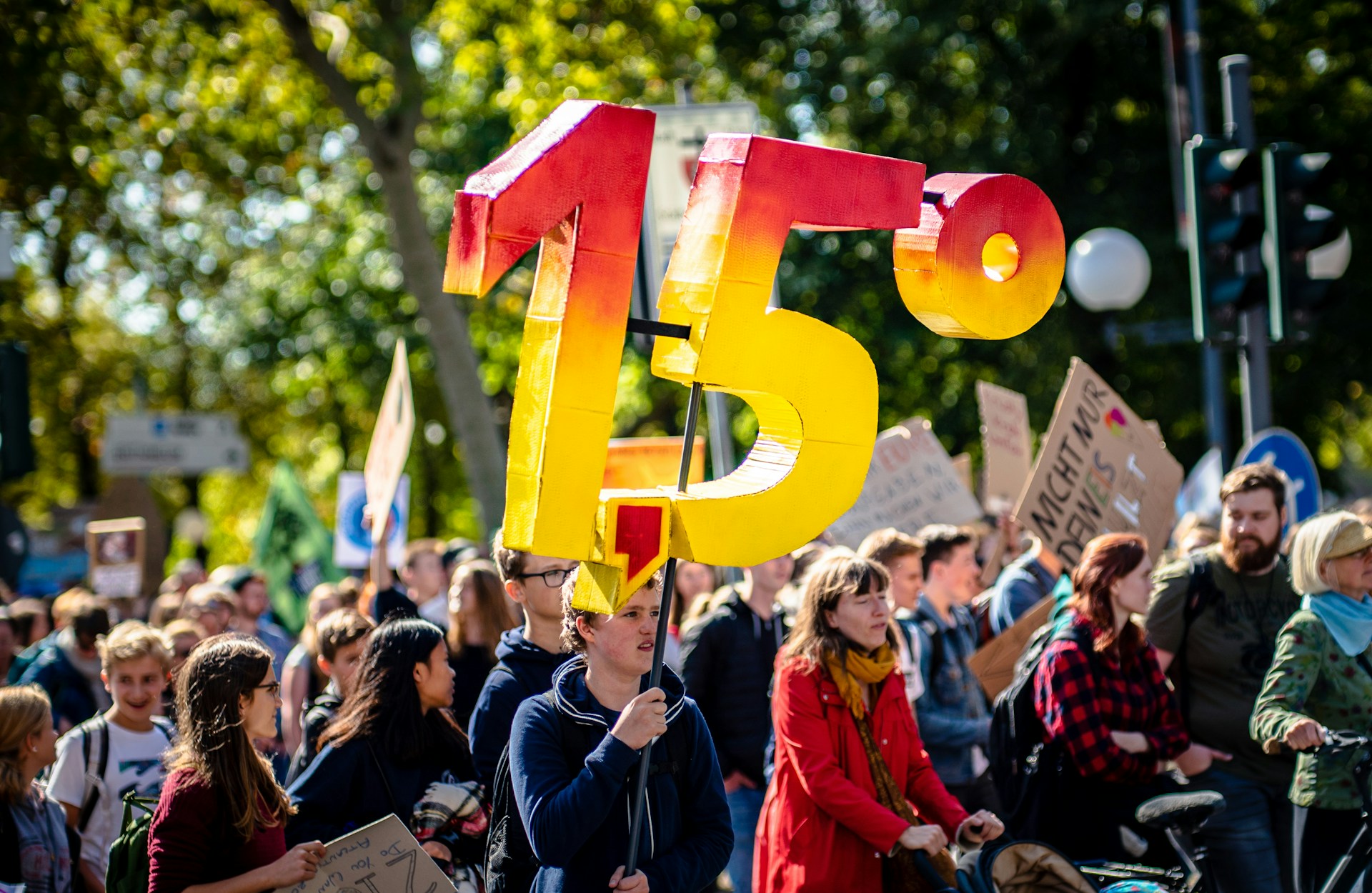Horasis India Meeting, Segovia, Spain, 23-24 June
The 2019 Horasis India Meeting took place in Segovia, Spain over 23-24 June. More than 300 members of the Horasis Visions Community gathered to jointly inspire India and Spain’s future. Co-hosted by IE University and the Confederation of Indian Industry (CII), the 2019 Horasis India Meeting explored Indian firms’ equilibrium in today’s turbulent times, while debating how to grow India’s economy rapidly and sustainably.
Through this Meeting, Horasis aims to present an interdisciplinary and systemic view of India and its place in the political and commercial world, reviewing the drivers across all sectors that contribute to its present and future well-being. The location of this meeting rotates annually: it has been held in Munich (2009), Madrid (2010), Naples (2011), Antwerp (2012), Belfast (2013), Liverpool (2014), Interlaken (2015), Cascais (2016), Interlaken (2017) and in Malaga (2018).
Welcoming participants to the meeting and to Spain, Reyes Maroto, Minister of Industry, Trade and Tourism, Spain explained that there is currently a great opportunity for Indian and Spanish cooperation. Sanjay Vema, Indian Ambassador to Spain conveyed that “India must more strongly engage with the world’s nations and especially with Spain with whom we have a very long history of trade and exchanges”. These comments were exemplified by Salvador Carmona, Rector, IE University, Spain who noted also the large diaspora of graduates and staff connected with IE who might assist India/Spain ventures. Rana Gurmit Singh Sodhi, Minister of Sports & Youth Affairs, Government of Punjab, India, said “As a sportsman, it feels immense pride to talk about the transformational power of Youth & Sports to economic development.”
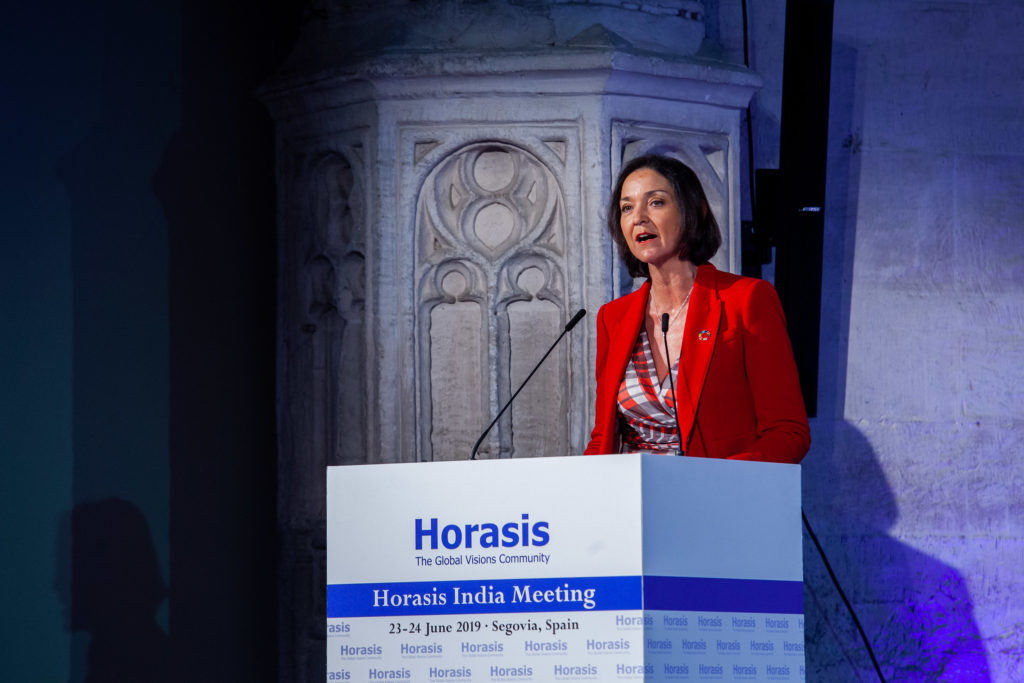
Reyes Maroto, Minister of Industry, Trade and Tourism, Spain, keynoting the meeting
Elections worldwide
The present time is proving to be one of continuing global tumult (some might say, chaos) often derived from or being exacerbated by political events – and by elections.
India recently held its parliamentary elections – like no other across the globe due to its massive population of over a billion, with about 900 million citizens eligible to vote in one of seven phases depending on their residence region. It is a modern-day triumph of digitization linking the person’s validity to vote within the local recording system, which being a digital system, allowed all votes to be counted and presented on May 23rd 2019. Narendra Modi was returned triumphantly to lead India with a comfortable outright majority. His party, the Bharatiya Janata Party (BJP) won 303 seats, which with his alliance partners took his seats to 352 – a substantial majority. Rajive Kaul, Past President AIMA; Chairman, Nicco Group, India noted that Mr Modi’s new government offers continuity and stability: he felt those constancies would soon raise the economy to $5 trillion, further attracting beneficial FDI.
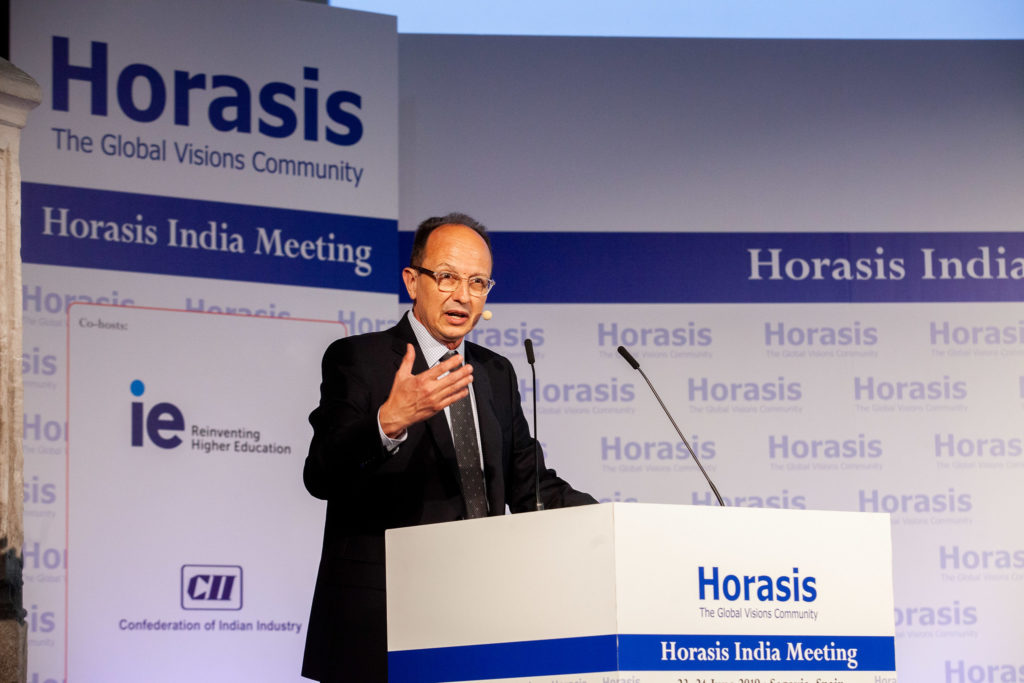
Salvador Carmona, Rector, IE University, welcoming participants
Spain has not escaped political flux even having recovered well from its financial crisis ten years ago. In general, the Spanish people are turning to new political faces: Pedro Sanchez became Prime Minister of Spain on 2nd June 2019 and pledged to support the governments’ compliance with EU deficit requirements and further develop Spain’s resurgence. More widely across Europe each EU nation voted for their representatives in the European parliament. And, potentially compounding its future economic and political discussions, its four senior members are also changing. And of course, there is BREXIT. It has suffered slow progress and its discussions confuse re-location and investment decisions in the UK, across the EU, and even globally
The world economic outlook
By January 2019 the IMF had noted the global expansion evident in 2017 and 2018 had weakened, especially in Europe and Asia. They reduced their forecast to 3.5 percent growth in 2019 rising slightly in 2020. That said, the deepening US-China trade tensions have delayed many investment decisions worldwide; and pressed upon China’s fiscal management positions. As a result, the IMF has reduced its 2019 forecast to 3.2 percent as they accepted increasing downside risks. Just after this Horasis meeting in Segovia, the G20 met in Osaka, Japan and we find that US President Trump has claimed an easing in the US/China trade tensions.
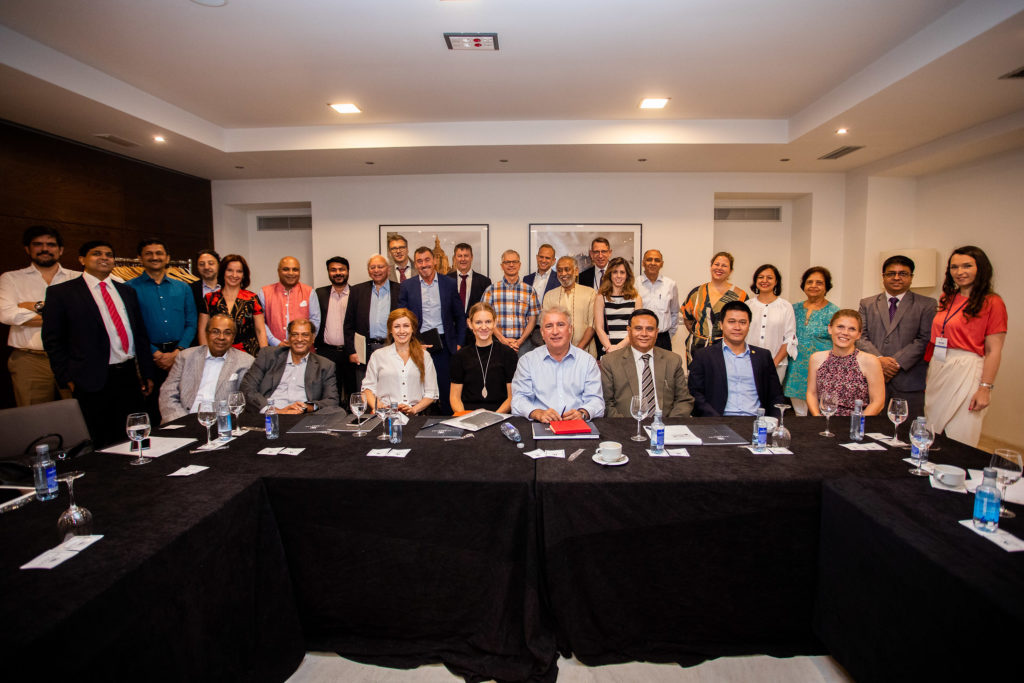
Workshop ‘Making the most of a 100 year life’ with Marina Tirado, Executive Director, IE Executive Education
Few economies are free of interactions raised by the US-China trade dispute – Spain is not an exception. Yet its growth recently has been higher than many other EU members at 2.6% in 2018 but may reduce into 2019 and 2020 as planned structural reforms take place: such as a more effective use of taxes to lower inequality and providing better support for jobseekers. Education, skills boosting, and the development of innovative high-tech industries are Spanish goals – just as in India.
Further issues concern the volatility in oil and gas supplies and thus global pricing. The OPEC group, once the major supplier now has less influence as other suppliers continue to pump oil and rising tensions in the Gulf Region, especially concerning Iran, so price volatility continues. There is a strong focus on the US ‘shale’ frackers who have low intrinsic costs and who can rapidly respond to market forces. A lower price aids India and Spain who are both net importers, but rapid pricing change, and global economic growth constraints further hinder business planning depressing economic growth in both nations and across the world.
The Indian economic outlook
T V Narendran, Chief Executive Officer & Managing Director, Tata Steel Limited; Vice President, CII, India talked about the building blocks for Spain’s and India’s shared economic and societal future “we must reach for our aspirations”. However, Juan Marin Guitard, Executive Senior Vice President, Banco Santander, Spain summed up our current financial malaise as “economists struggle to explain the past, even as they propose for the future”.
Sunil Mehta, Chairman, Punjab National Bank, India raised the issue of non-performing loans and theshadow banking that diminished the credit growth statistics “removing these and instigating good governance rules would allow firms to become nimbler enhancing India’s global standing.” While Sanjay Kirloskar, Chairman, Kirloskar Brothers, India opined that India ought to consider what it could offer the world and be more open to inwards investment while also carefully developing its skills base. Better quality of primary and secondary education will equip jobseekers to match labor demand, especially if individuals are more willing to travel to other regions. Preetha Reddy, Vice Chairperson, Apollo Hospitals, India reminded us that India will soon have the world’s largest English-speaking youth but they must be suitably skilled: as an instance, India needs an additional 14 million health care workers.
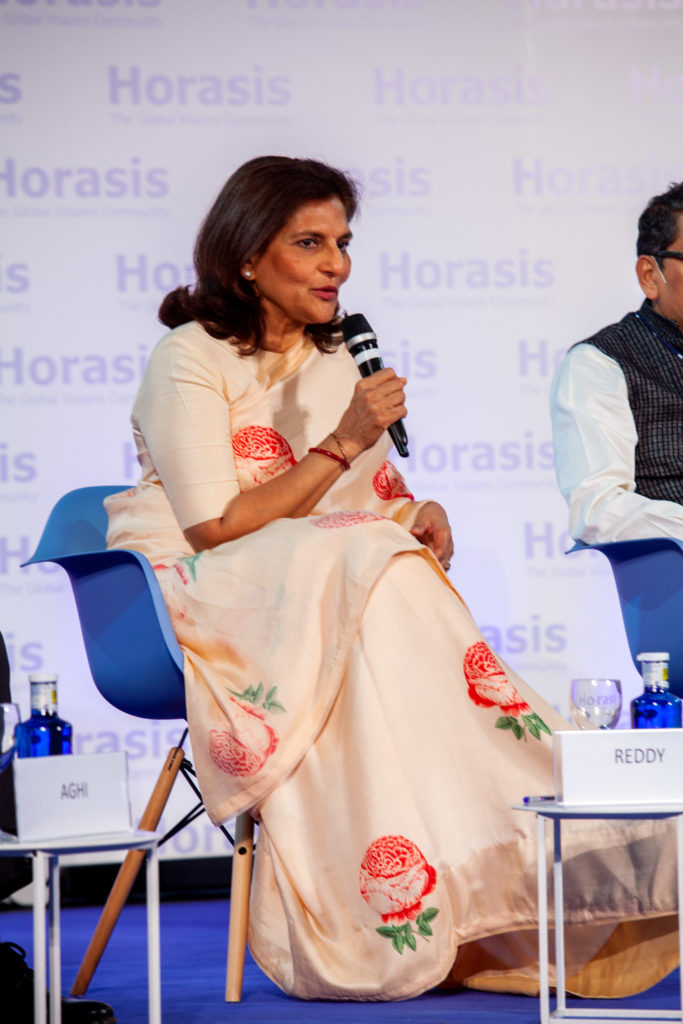
Preetha Reddy, Vice Chairperson, Apollo Hospitals
Given the recent Indian focus on its election some of the economic stimuli have been reduced – yet its GDP per capita has been growing faster than most other developing and developed nations with its rising labor productivity as a key driver; though its female participation rate has fallen tempering the overall growth rate. Nevertheless, India has the fastest growth projection among the G20 nations – expected to be 7.5 percent by 2020. A key need is to make growth more inclusive and more equitable through a modernization and simplification of labor laws and developing foreign investment. Nasser Munjee, Chairman, Development Credit Bank, India noted that the government has stated it has requests for $1 trillion for infrastructure development, though he thinks the reality might be $3 trillion.
Vishal Chordia, Minister of State, State of Maharashtra, described Mumbai as the world’s emerging financial hub, and called his state a hot-bed for entrepreneurship and innovation. The needs were emphasized by Sumant Sinha, Founder and Chairman, ReNew Power Ventures, India who opined Indian needs to integrate all its infrastructures and to look after its environment. But these comments raised the need find new ways to finance all the projects demanded of governments. As noted above, the Indian government has stated it has requests for $1 trillion for infrastructure development but it struggles to find sufficient cash to advance all reforms and projects so it has embraced the use of Public-Private Partnerships. Geoffrey Clements, Chairman, Commonwealth Infrastructure Partners, United Kingdom firmly stated that PPP was not well understood and the acronym was too often used as a simple catch phrase. He suggested that “every case is different and needs a team specifically set-up to ensure both the best form of PPP is selected, choosing the best of the contractors.”
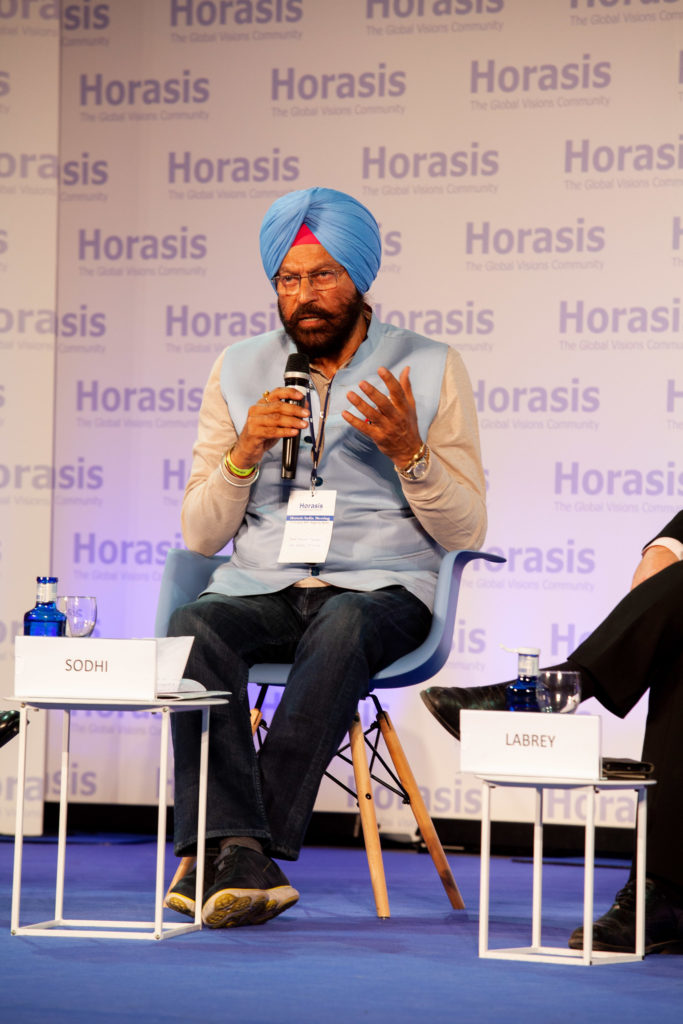
Rana Gurmit Singh Sodhi, Minister of Sports & Youth Affairs, Government of Punjab
The importance of innovation and entrepreneurship
Gonzalo Garland, Executive Vice President for External Relations, IE University, Spain reminded us that we must not rely only on the wisdom of today, but we must innovate: yet, he said “only about 2 percent of innovations reach commercialization” thus we must create favorable frameworks for innovation and entrepreneurs. Reforms must include people re-skilling as AI engages in all aspects of work and leisure opined Srikar Reddy, Chief Executive Officer, Sonata Software, India especially as more people will move from agriculture to the cities in search of new work. And we ought not to forget the Indian diaspora said Mukesh Aghi, President and CEO, US-India Strategic Partnership Forum, USA. One in eight US firms have an Indian person associated with its development and now, given the pressures of global nationalism, some of these entrepreneurs might wish to return to India: rules and regulations must be relaxed enough to attract these innovators.
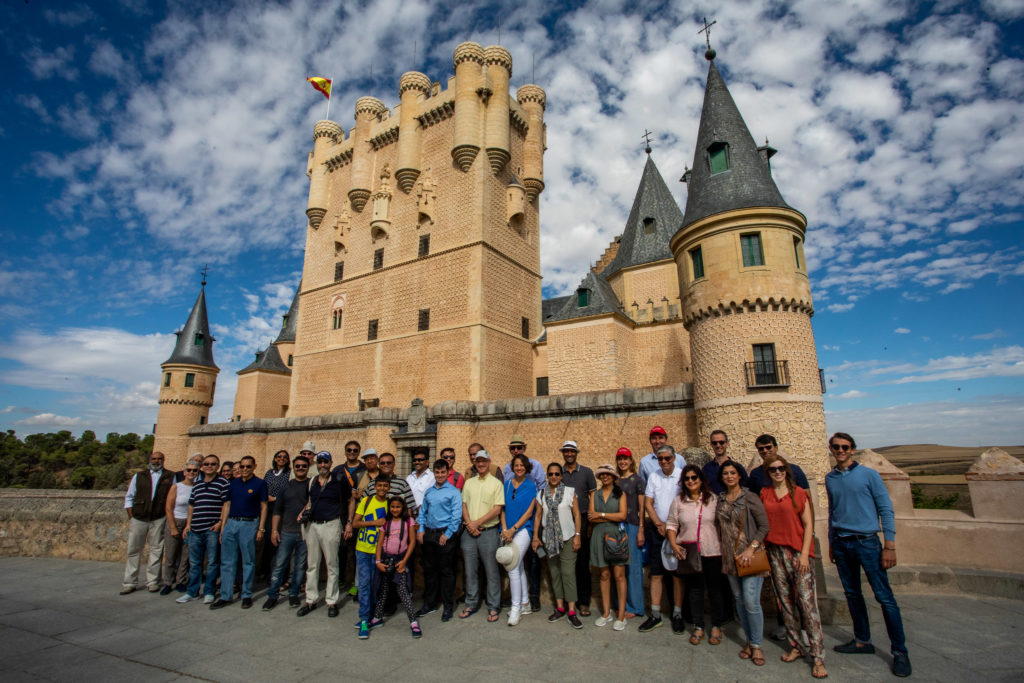
Delegates exploring Segovia
The takeaways
- India must believe in equality and transparent diversity so engage in the three basic pillars of education, infrastructure and the environment.
- As these basic pillars take time to develop, we need deeper mechanisms of pre-competitive collaboration that will embrace frugal innovation directed towards holistic solutions and longer-term value creation.
- New funding initiatives need to be developed that will minimize corporate risks, enhance cash flows and asset acquisition, especially in the small and medium enterprises.
- Sustainability must be at the forefront – embracing the reduction of waste in production, in over-purchasing, and being over-reliant on fossil fuels.
- Corruption must be eliminated and trust in institutions enhanced. With stronger trust, globalization will be enhanced which if well-managed could increase equality.

